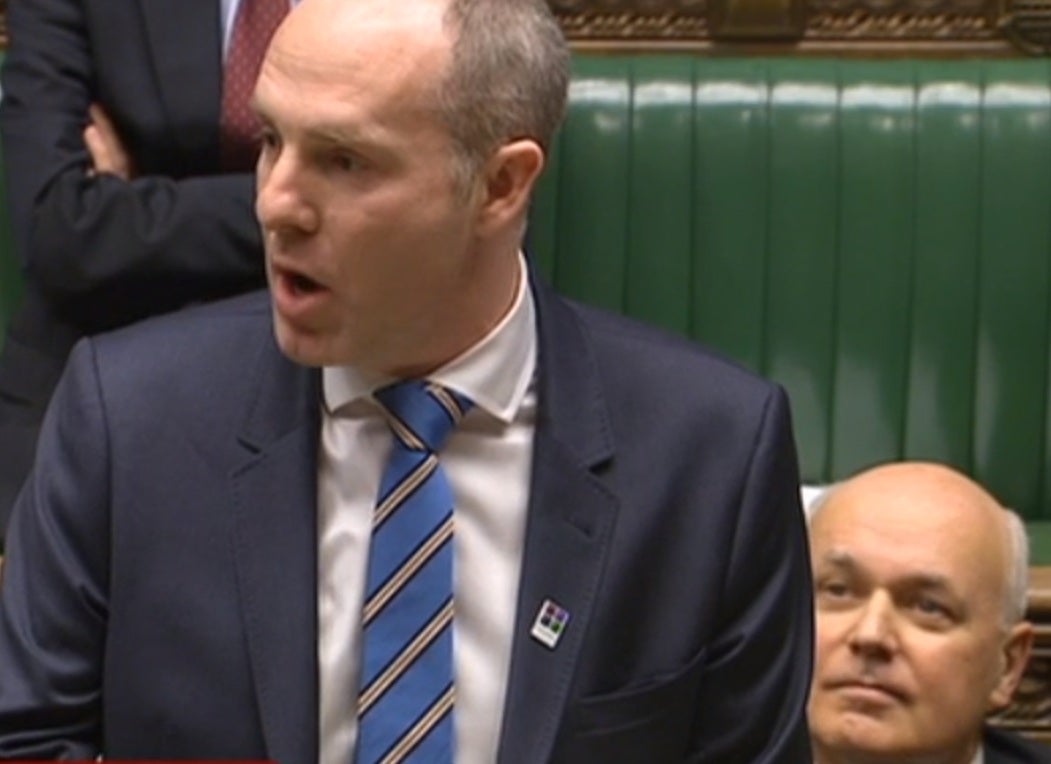Iain Duncan Smith refused to speak during a Bedroom Tax debate and got a junior minister to answer every question
Opposition MPs said they were 'flabbergasted' by the minister's approach

Your support helps us to tell the story
From reproductive rights to climate change to Big Tech, The Independent is on the ground when the story is developing. Whether it's investigating the financials of Elon Musk's pro-Trump PAC or producing our latest documentary, 'The A Word', which shines a light on the American women fighting for reproductive rights, we know how important it is to parse out the facts from the messaging.
At such a critical moment in US history, we need reporters on the ground. Your donation allows us to keep sending journalists to speak to both sides of the story.
The Independent is trusted by Americans across the entire political spectrum. And unlike many other quality news outlets, we choose not to lock Americans out of our reporting and analysis with paywalls. We believe quality journalism should be available to everyone, paid for by those who can afford it.
Your support makes all the difference.Iain Duncan Smith has been criticised for remaining silent during a parliamentary debate of recent court ruling on his “bedroom tax” policy.
The Work and Pensions Secretary was called to the House of Commons to answer an urgent question about the Court of Appeal ruling the bedroom tax unlawful and discriminatory.
Mr Duncan Smith however did not speak during the session and instead let his junior minister Justin Tomlinson answer all questions put by MPs on the subject.
The Work and Pensions Secretary sat next to Mr Tomlinson and could be seen occasionally talking quietly with him on the front bench.
Labour’s shadow work and pensions secretary Owen Smith said he was “flabbergasted” by Mr Duncan Smith’s behaviour and accused him of “ducking his responsibilities”.
Other MPs also criticised Mr Duncan Smith’s silence. In response to one, Mr Tomlinson said: “In fairness, I am the minister who responds to housing questions in Parliament”.
MPs expressed their disappointment at not being able to grill Mr Duncan Smith.
The Court of Appeal ruled the Bedroom Tax unlawful after two legal challenges: one by the family of a severely disabled teenager and the other by a rape victim whose police-installed panic room was subject to the charge.
The Department for Work and Pensions said it would appeal the decision in the Supreme Court – the UK’s highest and final appellate court.
A DWP spokesman said the people found to have been discriminated against were in receipt of discretionary housing payment – payment provided by councils to cancel out the effects of the “bedroom tax”.
“We are pleased that the court found – once again – that we have complied with the Public Sector Equality Duty,” the spokesperson said in a statement.
“We fundamentally disagree with the court’s ruling on the ECHR, which directly contradicts the High Court. We have already been granted permission to appeal to the Supreme Court.
“We know there will be people who need extra support. That is why we are giving local authorities over £870m in extra funding over the next five years to help ensure people in difficult situations like these don’t lose out.”
Subscribe to Independent Premium to bookmark this article
Want to bookmark your favourite articles and stories to read or reference later? Start your Independent Premium subscription today.
Join our commenting forum
Join thought-provoking conversations, follow other Independent readers and see their replies
Comments